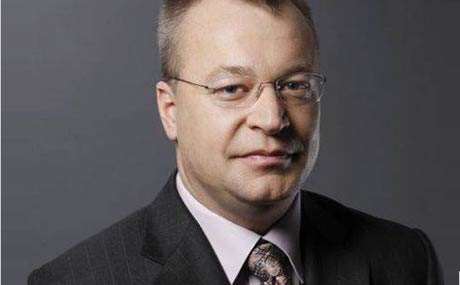Telstra is bringing in former Nokia CEO Stephen Elop to run its technology innovation and strategy operations from April.
Elop will be responsible for “leading Telstra’s strategy to become a world class technology company” and his appointment reinforced that ambition, the telco said.
Telstra CEO Andy Penn said Elop was a “recognised international technology leader and strategist” and would “add major firepower” to the company.
Aside from Nokia, Elop has also held global executive roles with Microsoft, Juniper, Adobe and Macromedia.
The portfolio that Elop will take control of at Telstra “brings together aligned lines of business including the Chief Technology Office, Chief Scientist, Telstra Software Group and Corporate Strategy with strong links into product development functions.”
Elop is best known for his time as Nokia’s CEO. His tenure lasted from September 2010 to September 2013, when it was announced that Microsoft would buy Nokia’s mobile and devices business.
Elop then became executive vice president of the Microsoft Devices Group before leaving in July 2015.
Aside from overseeing the sale to Microsoft, Elop’s tenure was also punctuated by the “burning platform” memo of 2011 that famously outlined Nokia’s business challenges of the time.
Elop used the analogy of an oil rig worker that awoke to find the offshore platform being consumed by flames. The worker had a choice to either perish in the fire or to jump into the freezing waters of the Atlantic.
The man was standing upon a ‘burning platform’ and he needed to make a choice,” Elop wrote.
“He decided to jump. It was unexpected. In ordinary circumstances, the man would never consider plunging into icy waters. But these were not ordinary times – his platform was on fire.
“The man survived the fall and the waters. After he was rescued, he noted that a ‘burning platform’ caused a radical change in his behaviour.
“We too, are standing on a ‘burning platform,’ and we must decide how we are going to change our behaviour.”
Elop went on to say that while Nokia had “some brilliant sources of innovation”, it did not bring them to market fast enough.
He believed Nokia had fallen behind its rivals and questioned why it had been allowed to occur – and what actions the company might be able to take to resurrect itself as the once-dominant mobile phone maker.
Elop, of course, chose to align Nokia with Windows Phone at the expense of other OS bets, and would later oversee the sale of Nokia’s mobile and devices business to Microsoft.
His time at Nokia and Microsoft isn’t remembered fondly in some parts of the industry. A book by Finnish journalists, ‘Operation Elop’, for example, claimed in 2014 that while Elop “wasn’t a Trojan horse brought in from Microsoft to undermine Nokia, he was ‘one of the world’s worst’ chief executives”.
Elop ultimately departed Microsoft after the Redmond software giant appointed Satya Nadella as its new CEO.
Elop said in a statement he is excited about his new role at Telstra "at a particularly unique moment of opportunity" for the telco.
“I have long recognised the Telstra team as one of the most innovative and insightful in the telecommunications industry,” Elop said.
“Telstra has a strong focus on its customers, and a willingness to invest in advanced products and services to best serve those customers.”









